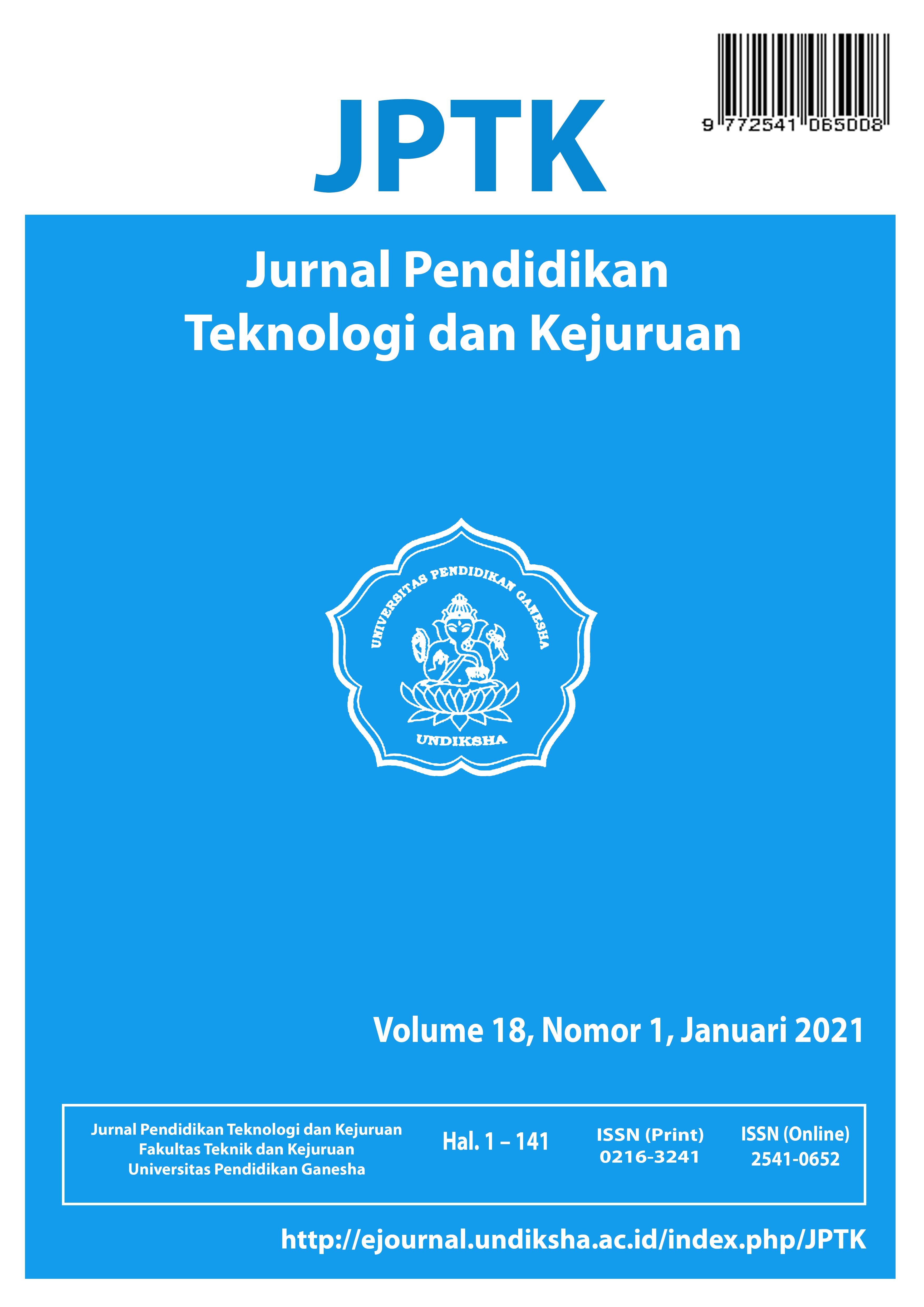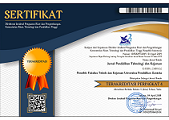DEVELOPING ENGLISH MATERIAL FOR CRUISE LINE BARTENDER FOR STUDENTS OF INTERNATIONAL BALI INSTITUTE OF TOURISM
DOI:
https://doi.org/10.23887/jptk-undiksha.v18i1.27913Abstract
This study aims to develop English for Cruise Line Bartender materials needed by Cruise Line Bartender students of The International Bali Institute of Tourism, to explain how the materials were developed, and to analyze the quality of the developed materials. This study adopts the design proposed by Dick and Carey (2001). The model proposed by Dick and Carey consists of several stages; 1) conducting need analysis (problem determination), 2) designing the model, 3) developing the model, 4) validating the model by experts, and 5) trying out the model (dissemination). The object of this study was the English for cruise line bartender at the International Bali Institute of Tourism. In collecting the data, three instruments were used namely questionnaires, guided interviews, and document analysis. The study shows that eight topics are required to be developed. The topics are getting to know you, setting up a bar, kinds of drink, drink recipe, and taking beverage order, we are sorry, cruise vacationers, and job interview. The materials were designed by following the English for Specific Purposes (ESP) material design involving input, content focus, language focus, and task. Since English for cruise line bartender is part of ESP that is under English for Occupational Purposes, the steps of the interactive data analysis method consist of data reduction, data display, and conclusion drawing. The results of expert judges' validation were analyzed descriptively by comparing the scores of two raters using Gregory's formula (2000). The quality of the developed materials was categorized as good material. Thus, it can be used as the source for learning by prospective the secretary of Cruise Line Bartender Program at The International Bali Institute of Tourism.
Keywords: English Learning Materials, Cruise line, BartenderDownloads
Published
Issue
Section
License
Authors who publish with the JPTK agree to the following terms:- Authors retain copyright and grant the journal the right of first publication with the work simultaneously licensed under a Creative Commons Attribution License (CC BY-SA 4.0) that allows others to share the work with an acknowledgment of the work's authorship and initial publication in this journal
- Authors are able to enter into separate, additional contractual arrangements for the non-exclusive distribution of the journal's published version of the work (e.g., post it to an institutional repository or publish it in a book), with an acknowledgment of its initial publication in this journal.
- Authors are permitted and encouraged to post their work online (e.g., in institutional repositories or on their website) prior to and during the submission process, as it can lead to productive exchanges, as well as earlier and greater citation of published work. (See The Effect of Open Access)












